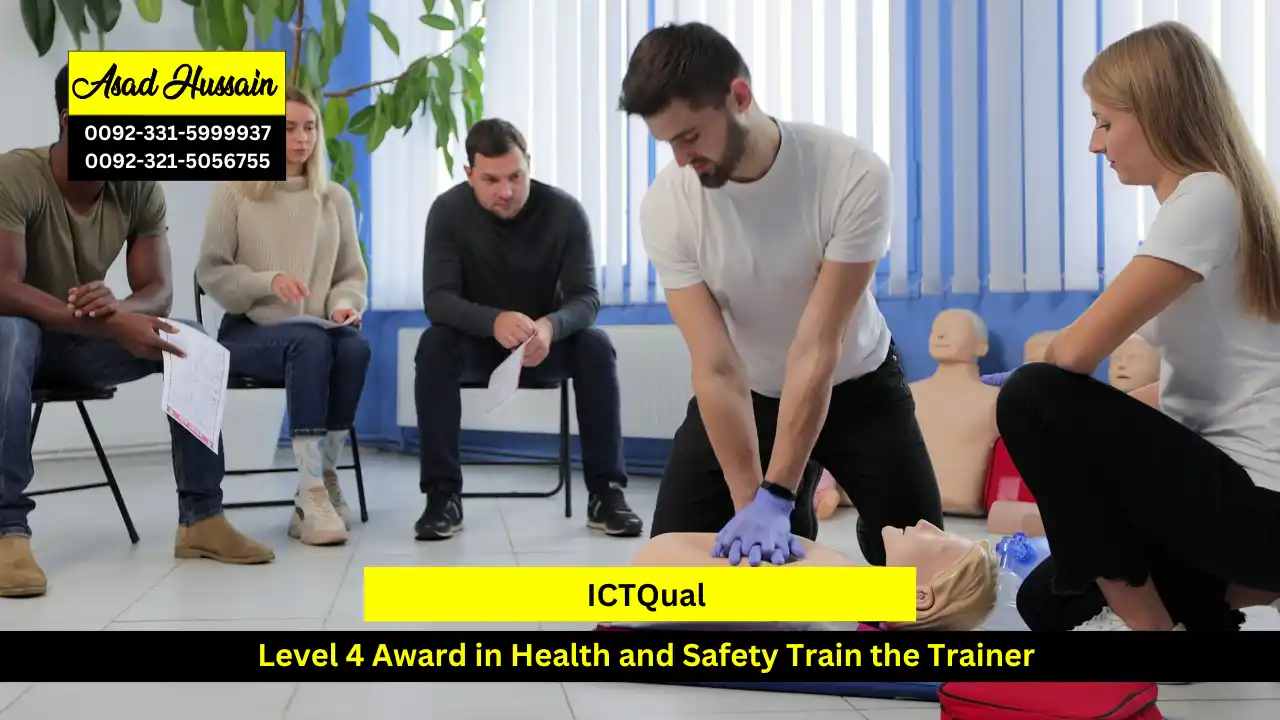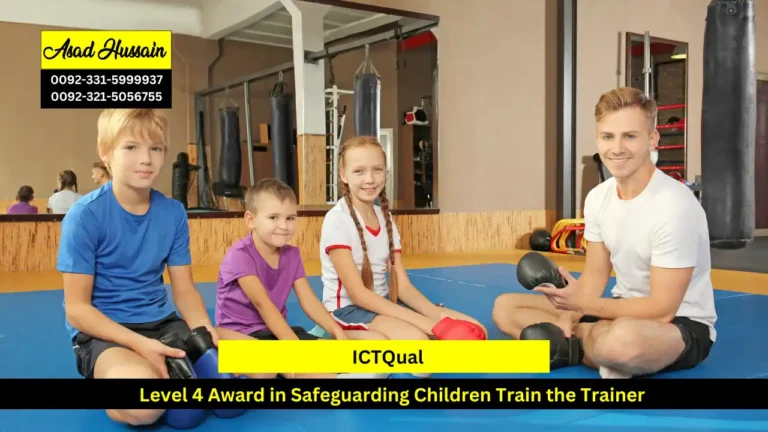In today’s fast-paced work environment, ensuring health and safety is paramount. Organizations are increasingly recognizing the importance of having qualified trainers who can effectively impart critical health and safety knowledge to their teams. The ICTQual Level 4 Award in Health and Safety Train the Trainer is designed to meet this need, equipping professionals with the skills and knowledge to become effective health and safety trainers.
The ICTQual Level 4 Award in Health and Safety Train the Trainer is a specialized certification program that aims to develop proficient trainers in the field of health and safety. This qualification is ideal for those who are responsible for training others in health and safety practices within their organizations or for those looking to pursue a career in health and safety training.
The assessment for the ICTQual Level 4 Award typically involves a combination of practical and theoretical evaluations. Participants may be required to deliver a training session, complete written assignments, and pass a final exam. Upon successful completion, participants receive a certificate recognizing their expertise as a health and safety trainer.
The ICTQual Level 4 Award in Health and Safety Train the Trainer is a valuable certification for anyone looking to enhance their skills and knowledge in health and safety training. Whether you are an experienced professional or just starting, this qualification can open doors to new opportunities and help create safer workplaces. Invest in your future and the well-being of your organization by becoming a certified health and safety trainer with ICTQual.
Program Highlights
Mandatory Units
- Introduction to Health and Safety Training
- Health and Safety Legislation and Regulations
- Risk Assessment and Hazard Identification
- Emergency Preparedness and Response
- Accident Prevention and Investigation
- Training Needs Analysis and Program Development
- Training Delivery and Facilitation Techniques
- Assessing Learning and Providing Feedback
- Continuous Professional Development and Improvement
- Candidates applying for this course should typically possess a minimum educational qualification equivalent to a high school diploma or its international equivalent. Some training providers may require higher educational qualifications, such as a bachelor’s degree or relevant certifications in health and safety.
- While prior experience in health and safety may not always be mandatory, candidates should ideally have some background or exposure to relevant fields. Experience in occupational health and safety, risk management, emergency response, or related disciplines can be advantageous.
- Applicants should demonstrate a basic understanding of health and safety principles, regulations, and best practices. Familiarity with concepts such as risk assessment, hazard identification, safety protocols, and emergency procedures is beneficial for effective participation in the course.
- Proficiency in verbal and written communication is essential for delivering effective training sessions. Candidates should be able to communicate fluently in the language of instruction and convey complex information clearly and concisely to diverse audiences.
- While prior teaching or training experience is not always required, candidates with experience in delivering presentations, facilitating workshops, or conducting training sessions may have an advantage. Experience in adult education, instructional design, or workplace training can be particularly relevant.
Introduction to Health and Safety Training
- Understand the importance of health and safety training in the workplace.
- Identify the roles and responsibilities of a health and safety trainer.
- Develop an awareness of the key principles of effective training.
Health and Safety Legislation and Regulations
- Gain knowledge of relevant health and safety laws and regulations.
- Understand the legal obligations of employers and employees.
- Apply legislative requirements to workplace scenarios.
Risk Assessment and Hazard Identification
- Learn how to conduct thorough risk assessments.
- Identify common workplace hazards and assess associated risks.
- Develop and implement effective risk control measures.
Emergency Preparedness and Response
- Understand the principles of emergency preparedness.
- Develop emergency response plans and procedures.
- Train others on how to respond effectively to emergencies.
Accident Prevention and Investigation
- Identify strategies for preventing workplace accidents.
- Understand the process of accident investigation.
- Analyze accident data to identify root causes and implement preventive measures.
Training Needs Analysis and Program Development
- Conduct a training needs analysis to identify gaps in knowledge and skills.
- Design tailored health and safety training programs to meet identified needs.
- Develop learning objectives and outcomes for training sessions.
Training Delivery and Facilitation Techniques
- Master various training delivery methods and facilitation techniques.
- Engage learners through interactive and participatory training sessions.
- Adapt training methods to suit different learning styles and needs.
Assessing Learning and Providing Feedback
- Develop methods for assessing learner comprehension and application.
- Provide constructive feedback to learners to enhance their understanding.
- Evaluate the effectiveness of training sessions and make necessary improvements.
Continuous Professional Development and Improvement
- Understand the importance of continuous professional development (CPD) in health and safety training.
- Identify opportunities for ongoing learning and skill enhancement.
- Develop a personal CPD plan to stay current with industry best practices and advancements.
The ICTQual Level 4 Award in Health and Safety Train the Trainer is ideal for a diverse range of professionals committed to fostering a culture of safety within their organizations. It is particularly suited for Health and Safety Managers who oversee safety protocols and ensure compliance with regulations, and Training Managers responsible for developing and implementing effective training programs. Supervisors and Team Leaders who need to educate their teams on safety practices will find this course invaluable. Additionally, individuals aspiring to embark on a career in health and safety training will gain the foundational knowledge and skills needed to succeed. Whether you are an experienced professional looking to enhance your training capabilities or a newcomer aiming to enter the field, this course provides comprehensive training to meet your needs.







